What Is Asthma?
It's a cold winters day, and you're standing on the street corner waiting for the light to change. As you wait patiently, an old delivery truck spews thick and dark exhaust right into your face. You turn your head away as quickly as you can, but you can already feel the inevitable coming..
First, it's just a simple cough with a slight feeling of tightness in the chest. It quickly intensifies, and you can feel the desperation and panic starting to come forth. Without a moments hesitation, you reach into your pocket and grab your inhaler, breathing in the familiar taste of relief.
You glare at the truck as it drives down the street, and begin to wonder...
What's happening here?
Obviously you're unable to breathe, but what exactly is the issue? Why can't you breathe in the first place? Why do certain things in the air make it worse? And probably most important of all, what should you do if you have an attack without your inhaler nearby?
To answer these questions, we need to begin with some basic anatomy of the respiratory system.
The Respiratory System
When you inhale, you do so through either your oral or nasal cavities.
Your nose is filled with mucous, which besides causing the occasional crusty booger, humidifies the incoming air so that your lungs don't dry out as a result of the increased airflow.
You also have vast quantities of superficial blood vessels that will warm the incoming air, ensuring that your lungs and respiratory system don't freeze from breathing. This is the reason that a simple pick of the nose can be enough to give you a tremendously intense nosebleed.
As the air then flows into the back of your throat, it next travels through your larynx, or voice box. Your vocal cords gently vibrate from the passing air, and sometimes you can even hear this as you inhale. It then continues down your trachea, and finally enters the lungs through a network of tubes called your bronchi.
The Lungs
The lungs are an extremely vast network of these bronchi, which originally are about the size of an average Sharpie marker, but eventually get so small they are borderline microscopic. The tubes are now called bronchioles, and this is where the real story of asthma begins.
Bronchioles branch into tiny microscopic sacs called alveoli, which are only one cell thick. The alveoli themselves are wrapped in tiny blood vessels called pulmonary capillaries, which are also only about one cell thick. It's at this location that gas exchange occurs, with oxygen diffusing through the alveoli, entering the capillary, and binding itself to the hemoglobin in the red blood cells inside of the capillary.
At the same time, the carbon dioxide that was in the bloodstream takes the opposite role, and diffuses into the alveoli, leaving the capillary and eventually being exhaled, retracing the exact steps the oxygen took on its way into the lungs.
In a normal, healthy individual, this process works like clockwork. We breathe in and out without really ever thinking too much about it. For an asthmatic however, this seemingly predictable process can run into a very significant problem. Mucous.
You see, mucous doesn't only act as a humidifier, but also as an air filter of sorts. It will grab any unwanted particulate that made its way into the respiratory tract, and deliver it to the body's immune system to be destroyed.
The problem for asthmatics is that this mucosal layer is chronically inflamed, which causes an already small airway to become even smaller. When you compound the problem with some type of irritant, like cigarette smoke for instance, small muscles that surround the bronchiole contract, attempting to close off the airway and prevent the particulate from entering the alveoli.
This constriction has the unfortunate effect of further irritating the muscosal lining, causing more mucous to be secreted, thereby closing off the airway, making breathing extremely difficult, if not outright impossible.
So What Can Be Done?
As of right now, the best description for asthma we have is that it is a "chronic inflammatory condition of the bronchioles". Like I mentioned earlier, the muscosal lining is inflamed, causing the airway to be restricted. However, you may have noticed that this isn't really a causal explanation.
The simple fact is that we don't know what causes the muscosal lining to be inflamed in the first place.
Numerous theories have been put forth, with my favorite being that asthma is the result of a pregnant mothers experiences in a polluted world.
For example, let's say that an expectant mother is living in Beijing, China.
Research suggests that because of this pollution, epigenetic signals are being sent to the growing fetus that in essence are saying the world is extremely polluted, and a more narrow airway would make it less likely to inhale the pollutants.
That's right - asthma could be the beginnings of natural selection attempting to adapt us as human beings to a more polluted world.
It's trying to save your life.
Regardless, the point remains that the condition needs to be treated. This is where the all too familiar inhaler comes into play.
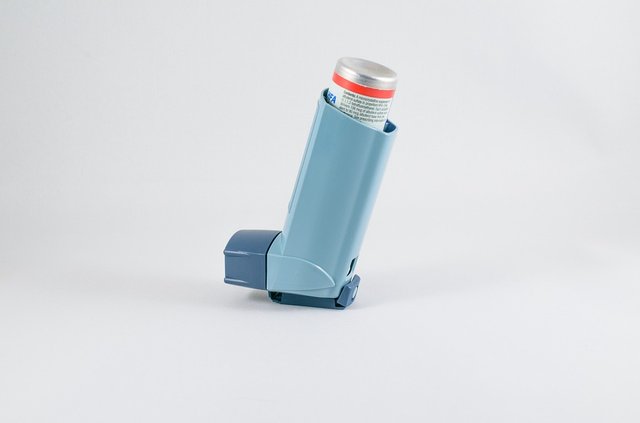
While by no means the only way to treat asthma, it does happen to be an extremely efficient way of doing it.
While several different types of medications exist, the goal is always the same - open up the airway. This is achieved by relaxing the muscles that surround the bronchiole, thereby opening up the airway.
What To Do If You Don't Have Your Inhaler
The important thing is to try and remain as calm as possible. Obviously it's difficult to stay calm when you're on the verge of suffocation, but the more you panic, the worse it will get.
You need to breathe long and deep, focusing all of your attention on this seemingly simple act. The shorter and more panicked the breaths are, the more negatively the musculature surrounding the bronchioles will respond. Look at a clock of some sort, and try to find some type of rhythm with your breathing.
For obvious reasons, it's important to remove yourself from whatever caused the attack in the first place. If it was some type of inhalant, walk away from the area. If it was more of an emotional response, remove yourself from the situation as quickly as possible.
The last, but probably the most important tip, is to seek medical attention if it gets worse. Most asthma attacks last somewhere around 10 - 15 minutes. If yours is approaching that time without improvement, it's time to call 911. I'm not trying to increase your hospital bills here, but the fact remains that you are potentially in a life threatening situation. Although not all asthma attacks are life threatening, it doesn't take much for an attack to get worse.
Disclaimer: I am not a doctor, and I am not attempting to provide medical advice. Use common sense at all times. It's better to be safe than sorry.
So what is asthma?
Asthma could be an evolutionary response to the polluted world we live in. When an irritant is inhaled, the body responds by coughing, which in turn causes the tiny muscles that surround the bronchioles to contract in an attempt to block the irritant from entering the bloodstream through the alveoli. This contraction irritates the already inflamed muscosal lining of the bronchiole, causing more mucous to be secreted. This mucous further narrows the the airway, making breathing extremely difficult, if not impossible.
I hope you enjoyed this post! Be sure to follow me for more posts of this nature.
See ya next time!
Like this post? Here are others that might interest you as well
Let's Learn Anatomy #1
Let's Learn Anatomy #2
Let's Learn Anatomy #3
Let's Learn Anatomy #4
What Is a Heart Attack?
Why Are Human Babies So Incredibly Weak???
Why Is Your Butt So Big???
Evolution, Society, and Cryptocurrency... How Does It All Relate???

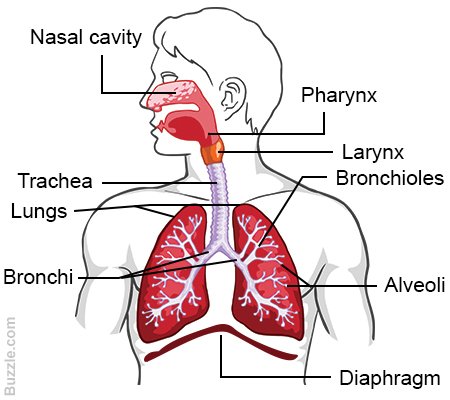

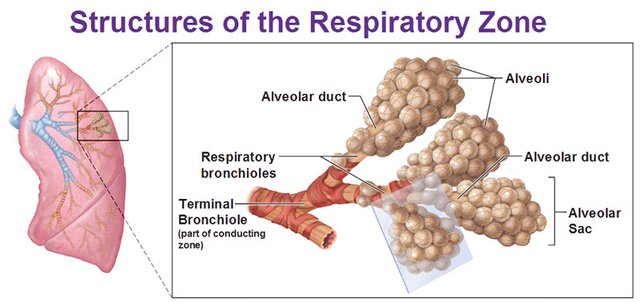
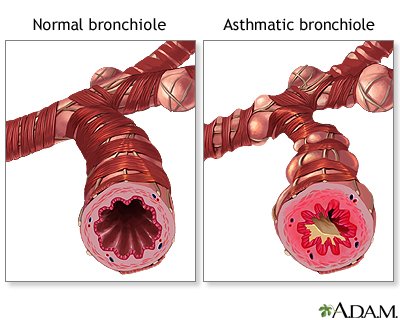
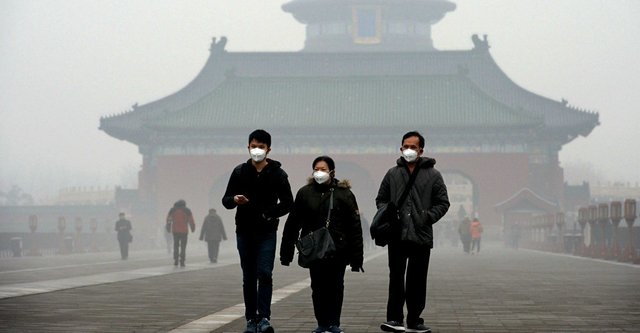
Very good contest! 😊👍
follow me i will follow you and upvote all your future post lets work together
Congratulations @justincottle! You have completed some achievement on Steemit and have been rewarded with new badge(s) :
Click on any badge to view your own Board of Honor on SteemitBoard.
For more information about SteemitBoard, click here
If you no longer want to receive notifications, reply to this comment with the word
STOP